Self improvement with a functional MRI
I am a completely functional adult. I am graduating from college next May at a private liberal arts school and I have completed all my courses with A’s and B’s without disability allowances. This spring I heard about Cognitive FX, a company that performs functional MRIs that can tell which neuropathways aren’t working efficiently after a brain injury. You can register for a neuro-Bootcamp where you work eight hours a day for a week to fix the neuropathways.

I signed up for a functional MRI (fMRI) at the end of August. To be honest, I was terrified. What if it said my brain was still damaged?! I felt like I was fully functional and didn’t want to hear I was still messed up in the brain. I also knew there were some little things: my boyfriend would tell me he understood something and I would repeat it again, or I would get so frustrated at school if I was learning something completely new. In most of the communication (my major), they teach concepts I was familiar with before my injury. Yeah, I’m learning lots of new concepts and theories, but it’s not like my computer design class where I knew nothing going into it. I was also nervous my brain would be ok and these little triggers I felt and ignored would stay forever. So I was scared my brain would have problems, and I was scared it would be fine.
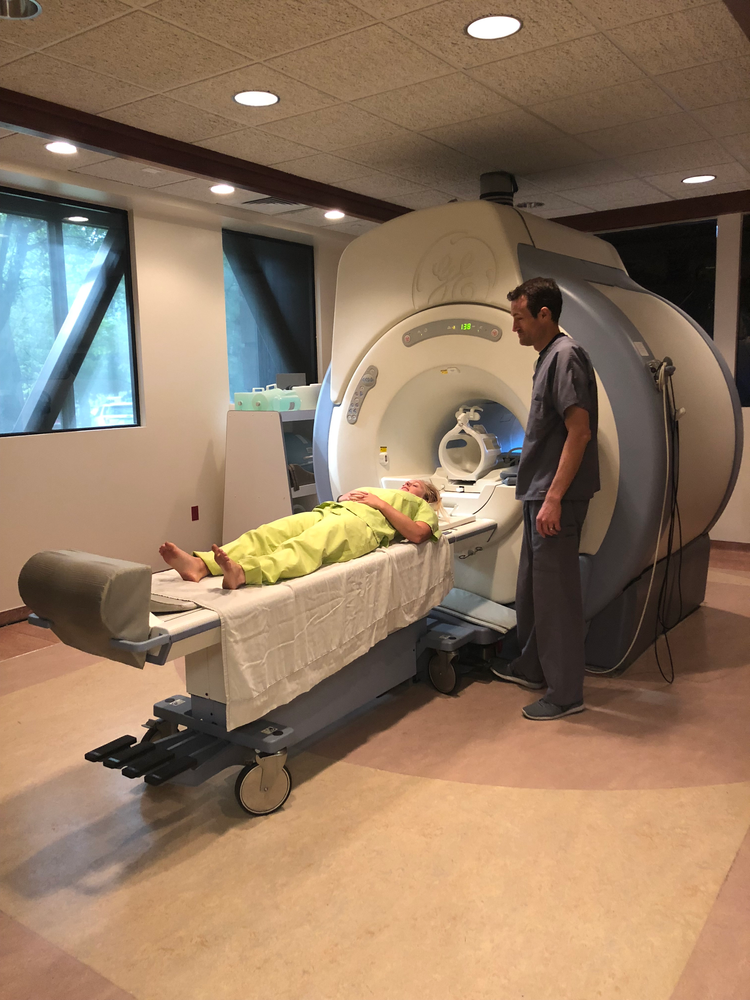
Learning how I would go into the fMRI
On Aug. 16, I went to Cognitive FX. I arrived, checked in, and was given a green hospital gown (I looked through the brown and white gowns to find a nice green one, ’cause I believe if you feel you look good, you will act with more confidence). I put on the gown and was brought to a back room and told what was about to happen. Cognitive FX uses six conventional neuropsychological test adaptations that are appropriate for the fMRI-scanning environment.
The tests are:
1) f-PNT Picture Naming (yellow)
2) f-TMT Trail Making (pink)
3) f-FMT Face Memory (blue)
4) f-MRT Matrix Reasoning (gray)
5) f-VMT Verbal Memory (orange)
6)f-VFT Verbal Fluency (green)
It is all linked to NCI Imaging Protocol.
I was brought into a back room and was taught how to do every test correctly.
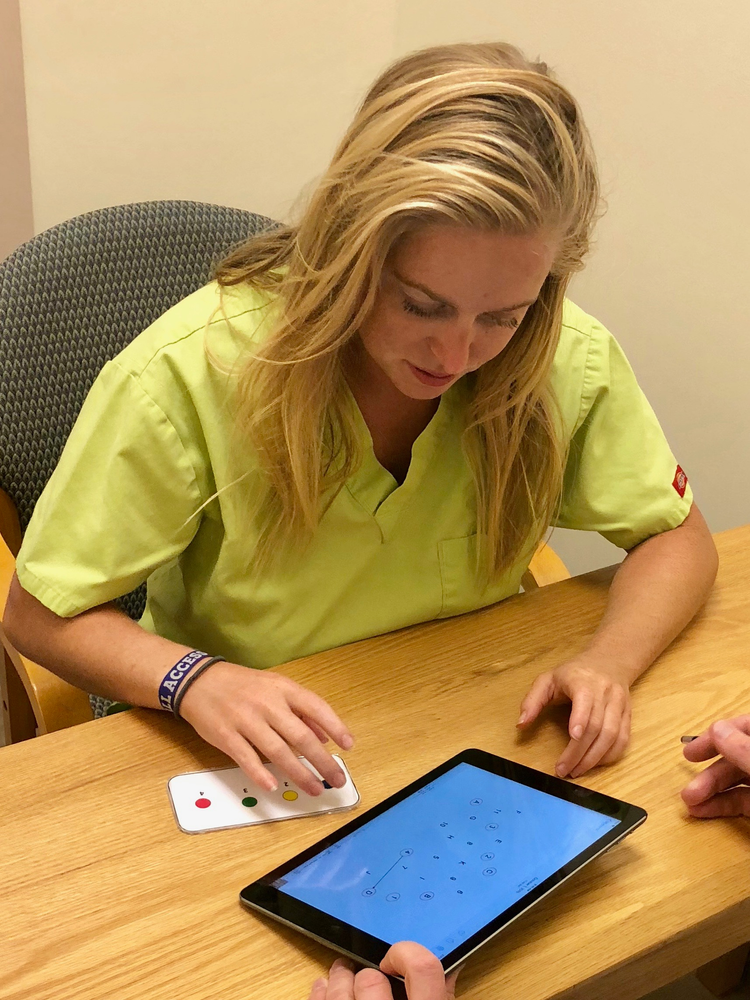
Learning how to do the different tests
Basically, you are put into an MRI machine. You have to lie completely still but you’re looking at a mirror that reflects a screen showing each test. There are six different tests that increase in difficulty, so the MRI can show the functionality of your different nerve pathways. These tests have similar exercises to IQ tests, showing the efficiency of the neuropathways in your brain.
This doesn’t really have any direct connection to how efficient you are as an adult, how much money you make, or if you have great friends, but it shows how your neuropathways are functioning. If your brain is damaged, you might use some pathways more than others. Your brain can find alternatives to work skills that are usually done by damaged parts of your brain.
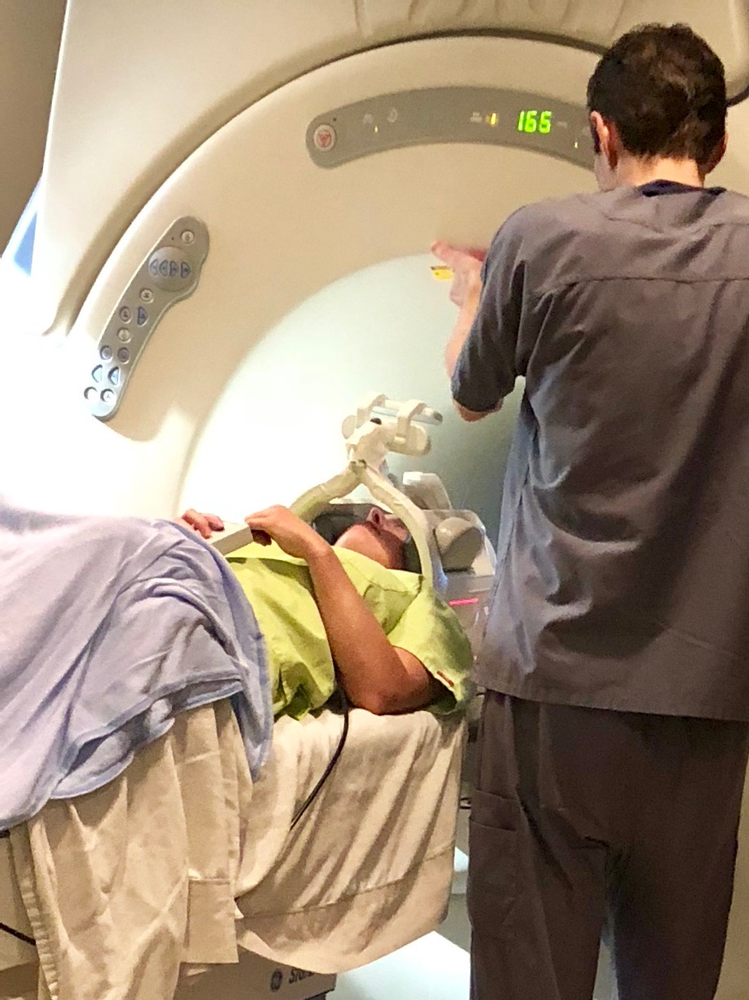
Going into the fMRI
So I went into the fMRI and did the six tests. It was a half-hour procedure, and man was it hard! When I was being taught how to do the tests in the backroom, the questions were simple, but the actual test questions got very difficult!
After the fMRI, we (my mom and I) had a short time in the waiting area and then were brought into another back room to discuss the results.
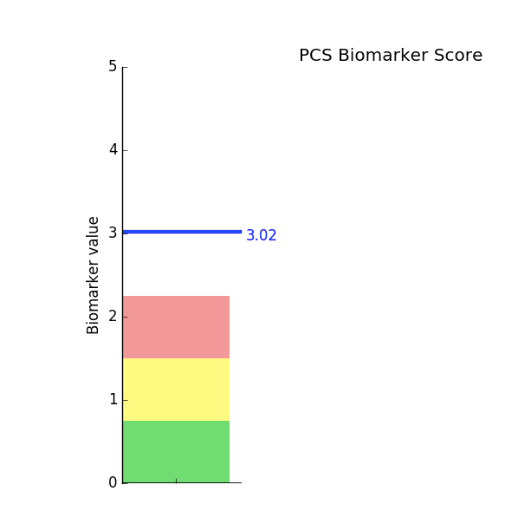
Biomarker value score
Turns out my biomarker, which analyzed the overall efficiency of my brain, was way above the red zone. If the neuropathways in my brain were working as efficiently as they did before my brain injury I would be in the green!
Instead of feeling frustrated and depressed that my brain was still injured, I latched onto the fact that I was told so many times that this doesn’t judge my efficiency as an adult, but just the efficiency of my neuropathways. Looking at my results and understanding neuroplasticity, I know there is a lot of cognitive healing my brain can still do. After I do the Cognitive FX therapy Bootcamp, which has proven success rates, my neuropathways will become more efficient. It will become easier for me to accomplish things I struggle with now, as I will learn how to build new neuropathways to overcome any deficiencies.
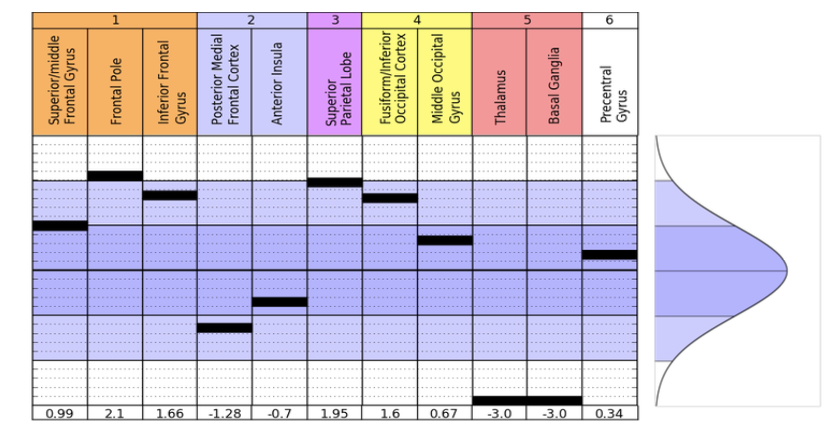
Different tests have different scores; the nerve pathways are color-coded
For example, on my different test scores, the pink part, (f-TMT) didn’t work at all. That portion of your brain helps you form new patterns, which makes sense to me because it was easy for me to relearn habits I had already formed before my injury but was really difficult and frustrating to form new habits.
Overall, my experience with Cognitive FX was fascinating and actually uplifting. If there are ways to keep fixing my brain, I am happy to take the steps. I believe there are two kinds of luck – controlled and uncontrolled luck. With controlled luck, it is continuing to take the steps that will make you live a better life. This is an important concept for everyone, but especially for brain injury survivors. I am now more than three years out of my coma. My family (especially my mom) helped me take a lot of steps at the beginning of my recovery to pursue healing programs outside of what is usually prescribed. Now a functional college student, I still have neuropathways that have deficiencies, so I am working on continuing to heal.
With a belief in neuroplasticity, there is no date to when your brain stops healing after a brain injury. I am excited about the therapy Bootcamp I am taking in December. The reason I am taking it in December is that it would be impractical to take it during the fall school semester, so I am doing a therapy Bootcamp with Cognitive FX right after the fall semester and right before Christmas! I am filming a short video about my therapy experience, and will make sure to share it all with you!

Jamie “MoCrazy” Crane-Mauzy
Talk Show Host- Life Gets MoCrazy on the Brain Injury Radio Network
Full-time student at Westminster College, SLC, Utah
Motivational Public Speaker